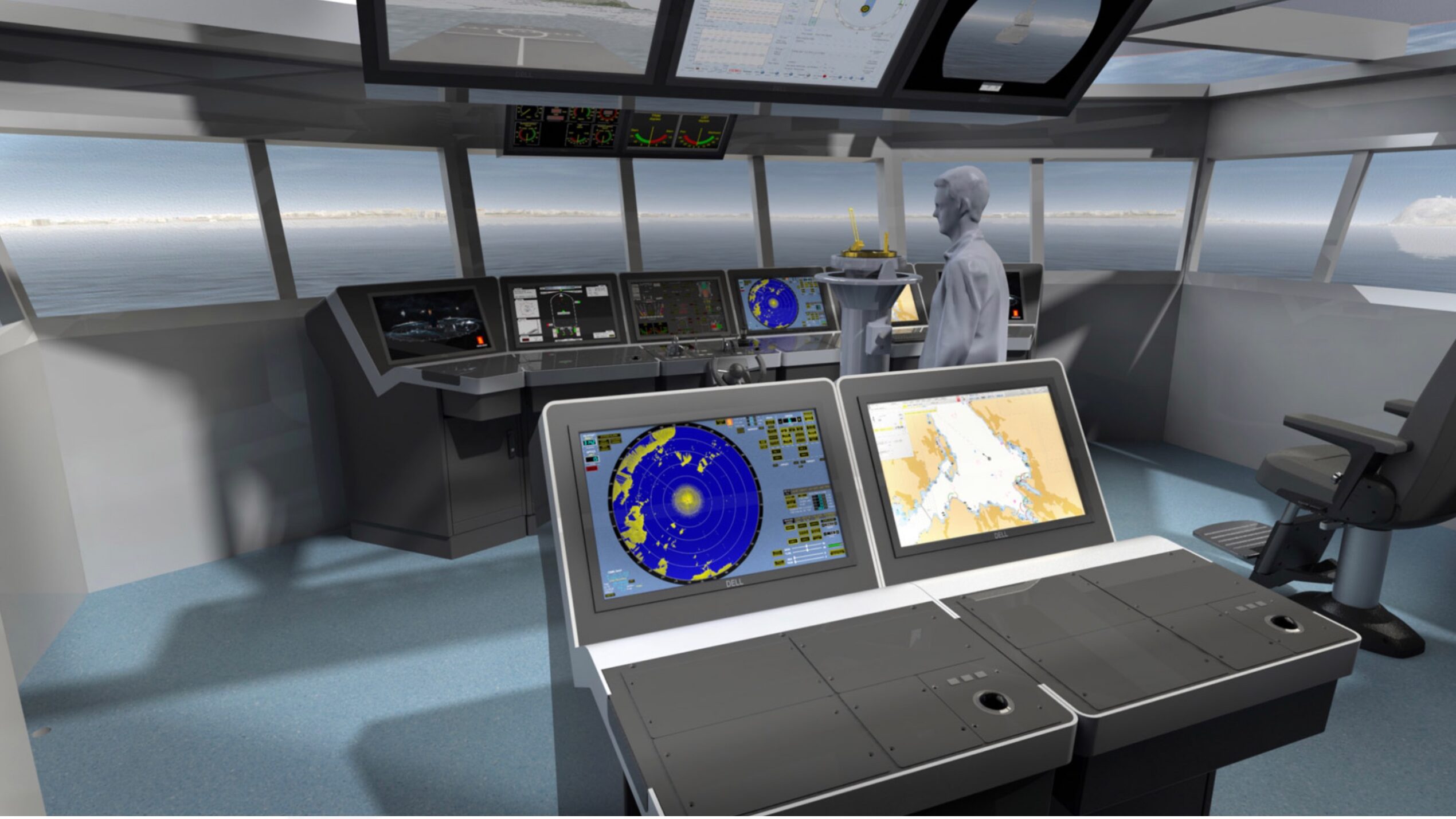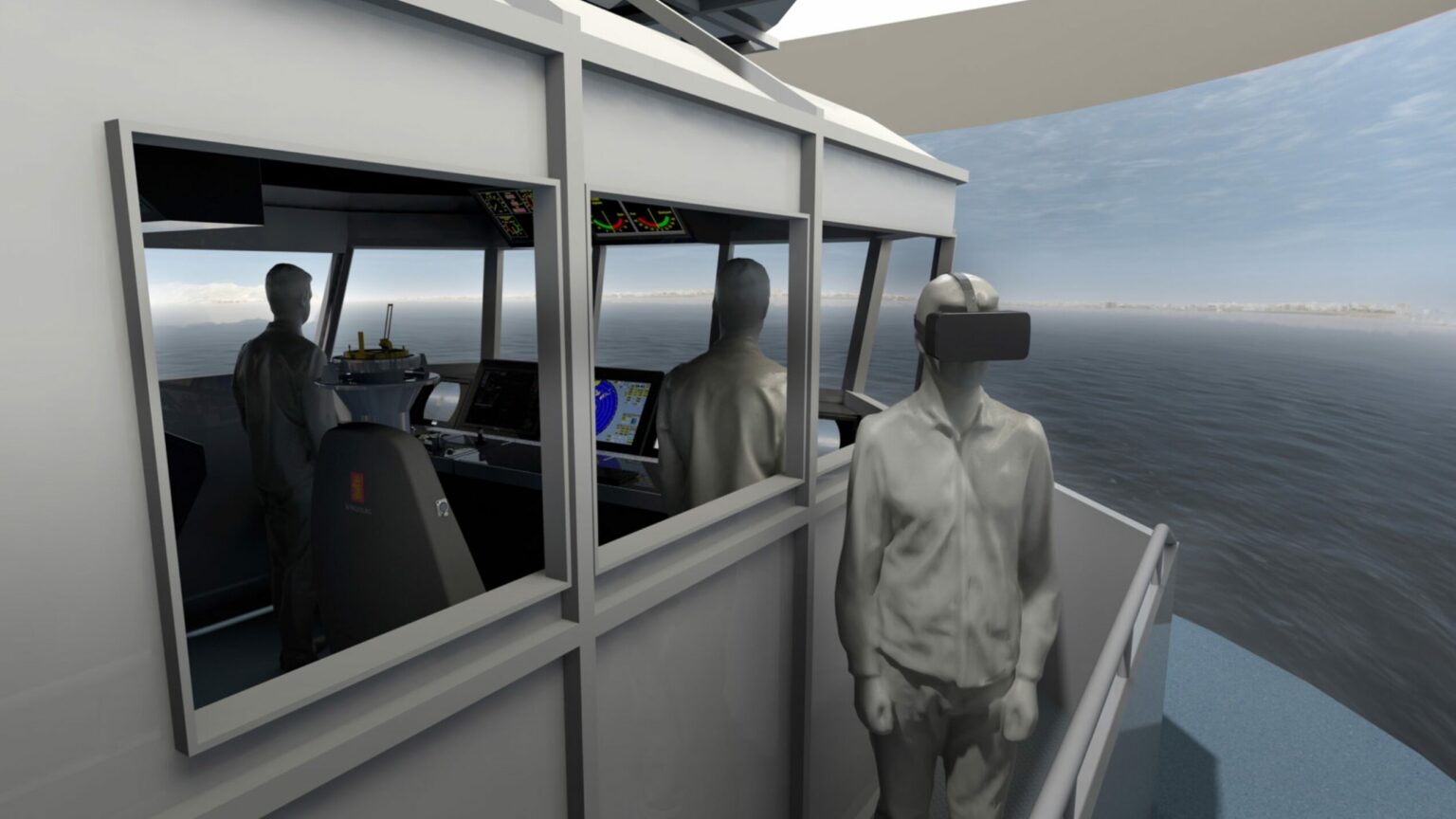The Royal Navy, an organization that helps stabilize the sea which keeps the maritime trade that is the lifeblood of the United Kingdom’s economy flowing announced that it has entered the metaverse with 3D virtual reality (VR) simulators to help train navigators and bridge teams, according to a tweet by its verified account on Feb. 14.
Students that enroll with the navy will now be wearing VR headsets that will take them into a naval metaverse where they will be thoroughly engaged in key dangerous manoeuvres that they will be accustomed to in real-life naval bases.
While VR headsets play an integral role in transitioning into the metaverse, it is not the sole new state-of-the-art technology on board.The Royal Navy has also designed software that can recreate harbours, entire fleets as well as waters across the globe.
Additionally, the software can also design challenging weather conditions that naval workers are used to day and night.

According to the Royal Navy, three sites in the form of the home of the Submarine Service in Faslane, the spiritual home of naval officers Britannia Royal Naval College in Dartmouth, and the home of warfare training HMS Collingwood in Fareham will be receiving the new trainers. The current simulators that have existed for 20 years have trained bridge teams, officers of the watch, and navigators.
This metaverse project is part of the Royal Navy’s modernization training program called Project Selborne. Capita, the largest business process outsourcing and professional services company in the United Kingdom that provides consulting, transformation, and digital services business to interested parties is overseeing the 12-year programme.
Project Selborne will see to the updating and delivery of a slew of training across diverse branches and naval disciplines.
Speaking on the availability of virtual naval bases, Lieutenant Commander Mark Raeburn who is in charge of home warfare training made it known that more sailors could earn the required practical training experience which will complement the time they spend in the classroom.
While the simulators will be working independently in the near term, they will be connected so that students across the three sites can train together and share resourceful knowledge.
Metaverse continues to expand
The metaverse has been forecasted to reach $824.53 billion by 2030 at a compound annual growth rate (CAGR) of 39.1%, according to Verified Market Research, a global research and consulting firm. The key markets for this growth in Europe include the United Kingdom, France, and Germany.
Due to its growth in a short period, other agencies aside from the Royal Navy have tapped into its resourcefulness.
On Feb. 15, the Khaleej Times reported the launch of the Mall of the Metaverse, Dubai’s virtual shopping centre. Visitors will be able to seek digital experiences across retail, entertainment, and leisure offerings.
In October 2022, Ajman Police, a section of the United Arab Emirates’ police force became the first law enforcement agency to provide services to residents through metaverse technology.









 and then
and then